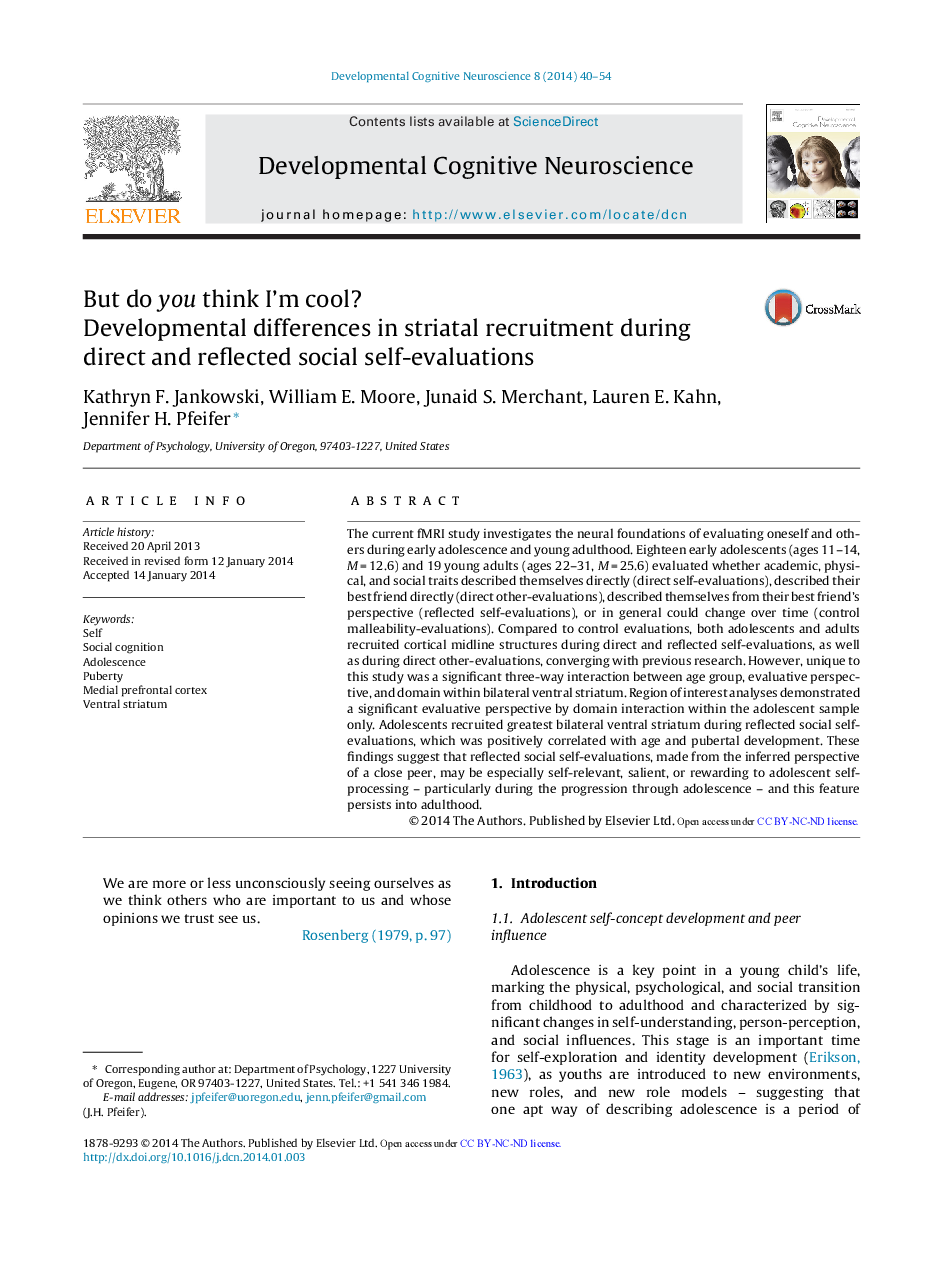| Article ID | Journal | Published Year | Pages | File Type |
|---|---|---|---|---|
| 4316648 | Developmental Cognitive Neuroscience | 2014 | 15 Pages |
•fMRI study examined neural correlates of evaluating self and close others.•Adolescent ventral striatum (VS) response is sensitive to evaluation type and domain.•Adolescents recruit VS during social self-evaluations from best friend's perspective.•This VS response correlates with pubertal status and age throughout adolescence.
The current fMRI study investigates the neural foundations of evaluating oneself and others during early adolescence and young adulthood. Eighteen early adolescents (ages 11–14, M = 12.6) and 19 young adults (ages 22–31, M = 25.6) evaluated whether academic, physical, and social traits described themselves directly (direct self-evaluations), described their best friend directly (direct other-evaluations), described themselves from their best friend's perspective (reflected self-evaluations), or in general could change over time (control malleability-evaluations). Compared to control evaluations, both adolescents and adults recruited cortical midline structures during direct and reflected self-evaluations, as well as during direct other-evaluations, converging with previous research. However, unique to this study was a significant three-way interaction between age group, evaluative perspective, and domain within bilateral ventral striatum. Region of interest analyses demonstrated a significant evaluative perspective by domain interaction within the adolescent sample only. Adolescents recruited greatest bilateral ventral striatum during reflected social self-evaluations, which was positively correlated with age and pubertal development. These findings suggest that reflected social self-evaluations, made from the inferred perspective of a close peer, may be especially self-relevant, salient, or rewarding to adolescent self-processing – particularly during the progression through adolescence – and this feature persists into adulthood.
